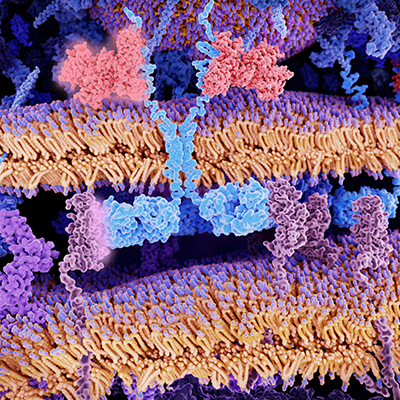November 4, 2022 -- Researchers have discovered a novel pathway very early during in vitro differentiation that supports the development of T cells and natural killer (NK) cells from human induced pluripotent stem cells (iPSCs). Their new platform holds potential for advances in immunotherapy for cancer and autoimmune diseases.
In their study, published November 3 in the journal Stem Cell Reports, researchers from Boston University Chobanian & Avedisian School of Medicine and Boston Medical Center based their method on Notch stimulation -- a pathway involved in cell fate decisions, proliferation, and death.
The Notch pathway consists of four receptors (NOTCH1-4) and delta/jagged ligands. Notch receptors are activated by the mechanical force of ligand endocytosis, which exposes the receptor to cleavage by protease gamma-secretase to release the Notch intracellular domain, which drives Notch-dependent gene expression in the nucleus.
According to the authors, in vitro studies have demonstrated the importance of the Notch pathway in hematopoiesis, or the production or blood cells and platelets. NOTCH1 is known to be required to produce hematopoietic progenitor cells with T cell potential in vivo.
"We have identified a critical window when Notch activation robustly improves access to definitive intermediate cell type in blood cell development (hematopoietic progenitors) with T/NK cell lineage potential," corresponding author Dr. Gustavo Mostoslavsky, PhD, associate professor of medicine and microbiology, said in a statement.
The authors note that current practices for immunotherapy are extremely expensive and accompanied by serious adverse events. The establishment of platforms, such as the one in this study, can make the processes safer, simpler, and cheaper, they added.
The researchers believe a novel platform allowing universal off-the-shelf T and NK cell access has enormous potential for future immunotherapies targeting a broad range of diseases, including cancer, autoimmune diseases such as rheumatoid arthritis and lupus, as well as immunodeficiencies.
Copyright © 2022 scienceboard.net










